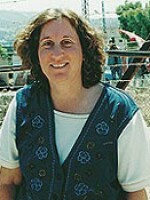ALEX CHADWICK, host:
From the studios of NPR West, this is DAY TO DAY. I'm Alex Chadwick.
MADELEINE BRAND, host:
I'm Madeleine BRAND.
Coming up, the final blog entry of an American soldier killed in Iraq. He had asked a friend to post it for him in case something happened; something did.
CHADWICK: First, the Middle East where President Bush spent much of today on the West Bank. It's his first visit there. The president said there that he's confident Israelis and Palestinians will reach a peace deal this year and said he will do whatever it takes to help.
From Jerusalem, NPR's Linda Gradstein reports.
LINDA GRADSTEIN: President Bush is only the second U.S. president, after Bill Clinton, to visit the West Bank. Today, Mr. Bush went to Ramala, the Palestinian's political and commercial capital. Speaking at a news conference after meeting Palestinian leader Mahmoud Abbas, Mr. Bush said both Israelis and Palestinians need to make tough choices to move forward, and he said he is ready to help.
President GEORGE W. BUSH: Nudge the process forward, like pressure. You know, be a pain if I need to be a pain, which in some people's mind isn't all that hard.
GRADSTEIN: Palestinian officials went into today's meeting saying they plan to emphasize two issues: continued Israeli settlement building in the West Bank and Jerusalem in violation of the U.S.-backed roadmap to peace, and the network of Israeli army checkpoints in the West Bank that severely hamper the Palestinians' freedom of movement.
Early morning fog forced the cancellation of Mr. Bush's planned helicopter trip to Ramala, so he went by road convoy instead, getting a firsthand look at some of those checkpoints while passing near the barrier Israel is building in and around the West Bank.
Pres. BUSH: I can understand why the Palestinians are frustrated driving through checkpoints. I can also understand that until confidence is gained on both sides, why the Israelis would want there to be, you know, a sense of security. In other words, they don't want a state on their border from which attacks would be launched. I can understand that. Any reasonable person can understand that.
GRADSTEIN: Mr. Bush had warm words for Abbas, calling the Palestinian leader a good man and saying that he understands that the way to achieve peace is to offer an alternative vision of liberty. He also said the Palestinian security forces have made significant progress in being able to be responsible for security in Palestinian areas, and he urged Israel to help that continue.
Pres. BUSH: And so my message to the Israelis is that they ought to help, not hinder, the modernization of the Palestinian security force. It's in their interests that a government dedicated to peace and understanding the need for two states to live side by side in peace have a modern force.
GRADSTEIN: Abbas spelled out Palestinian demands, saying they want an independent state with East Jerusalem as its capital. He also said Palestinians want to be able to move freely in their country with no Israeli road blocks or Jewish settlements. Speaking through a translator, he said the U.S. understands his position.
President MAHMOUD ABBAS (Palestine): (Through translator) We are very satisfied about the results that we have achieved so far through this visit, the visit of President George Bush. We talked about all subjects and issues. We agree on all matters. All the matters are very clear.
GRADSTEIN: But not all Palestinians were convinced. After President Bush left Ramala for Bethlehem, police used clubs to break up a protest by several dozen Palestinians chanting anti-Bush slogans. Mhusta Fabarguti(ph), a member of the Palestinian parliament, said he remains skeptical about Israel's commitment to peace.
Mr. MHUSTA FABARGUTI (Palestinian Parliamentarian): When we speak about a vision of our state, it should be a real state. A state with sovereignty, a state with freedom, a state with democracy, and not an (unintelligible) that is controlled by Israel in a system of apartheid.
GRADSTEIN: Today's talks also covered the issue of Gaza, which is now outside the control of the Abbas government, ruled by the Islamist group Hamas which rejects peach talks and refuses to recognize Israel. President Bush said Hamas has delivered nothing but misery to the people of Gaza, while the Abbas government offers them hope.
Linda Gradstein, NPR News, Jerusalem. Transcript provided by NPR, Copyright NPR.






